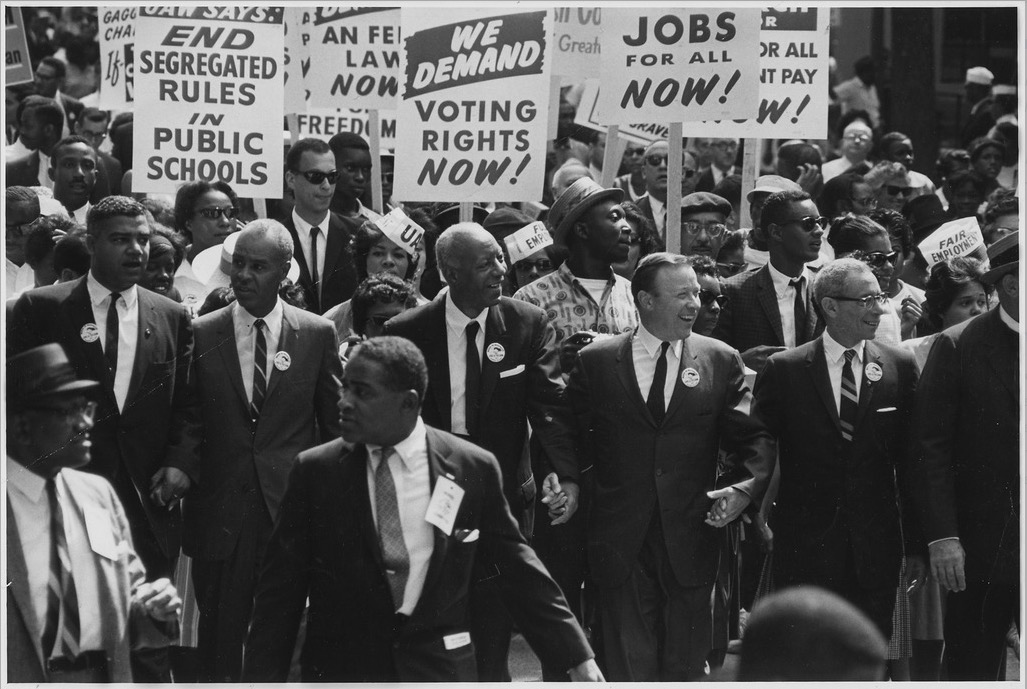WWII and the Civil Rights Movement
Protest Songs
The term "protest song," used here interchangeably with "resistance song," embodies many of the characteristics discussed so far as well as new ones presented in this section.
Listen to the three songs below that address African American people's dissatisfaction and resentment of unfair treatment regarding job opportunities, housing, education, health, and other socioeconomic issues.
We Shall Overcome
Over My Head
Mississippi Goddam
The melody and lyrics in protest songs did not originate from early spirituals. Moreover, the protest songs here refer specially to fundamentally unjust events concerning voter registration, jobs, a person's inherent rights, or the like. Additionally, the protest songs presented clearly are illustrative of African American individual activism.

This Little Light of Mine
For instance, the lyrics of the song "This Little Light of Mine," which was sung during meetings, rallies, and the like, lifts burdens, instills courage, strengthens confidence, and so on. On August 31,1962, in Ruleville, Mississippi, Ms. Hamer, and other community members were not allowed to register to vote. Afterwards they sang, "This Little Light of Mine."
In 1963 Ms. Fikes of Selma, Alabama, who at some point received the unofficial title of the voice of Selma during the civil rights movement, sang "This Little Light of Mine" after learning about a racist attack on a few of her friends.
Watch Ms. Fikes speak about her personal experiences in Selma as well as about the movement.
3.6A Bettie Mae Fikes--The Movement Captured Me

